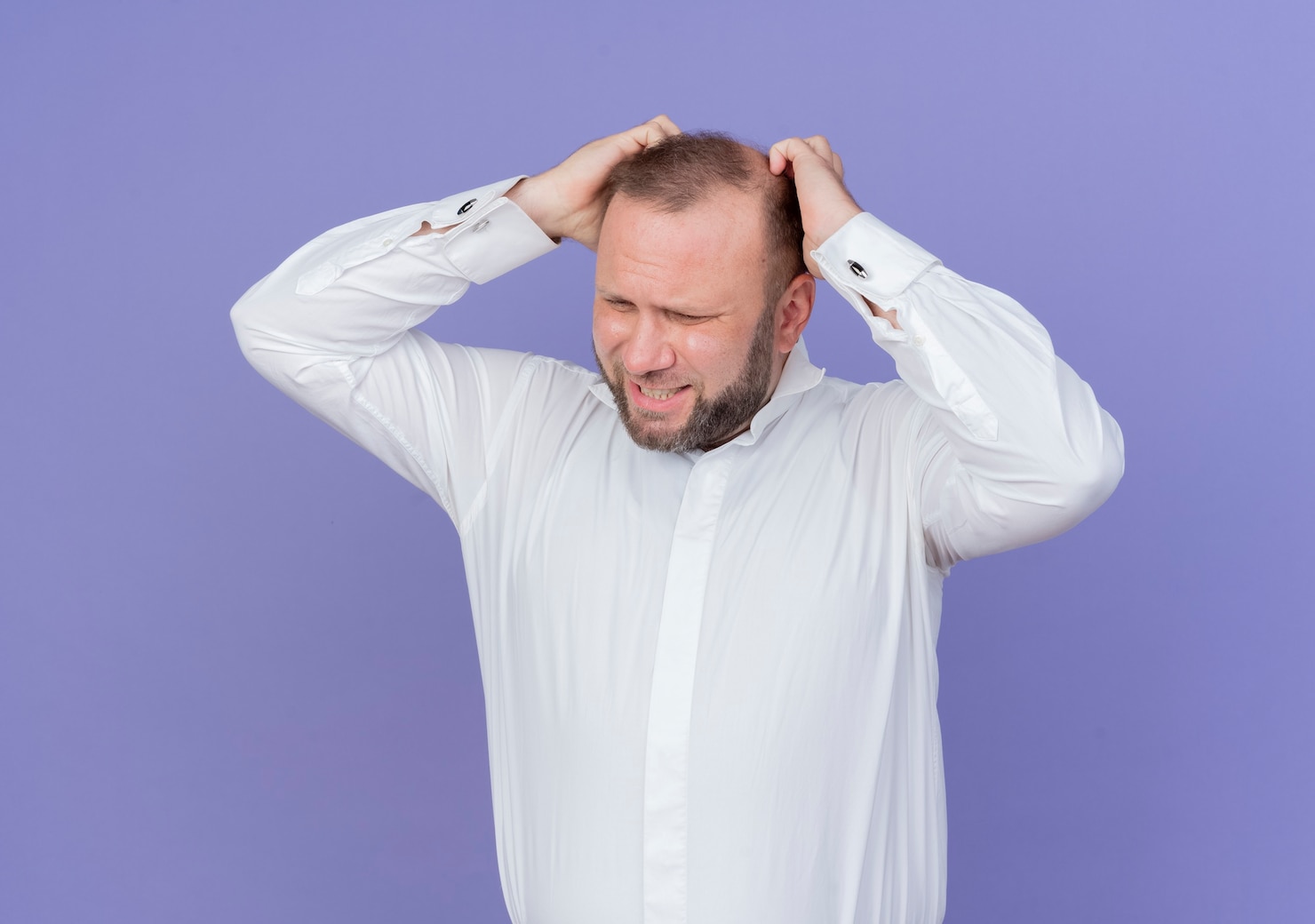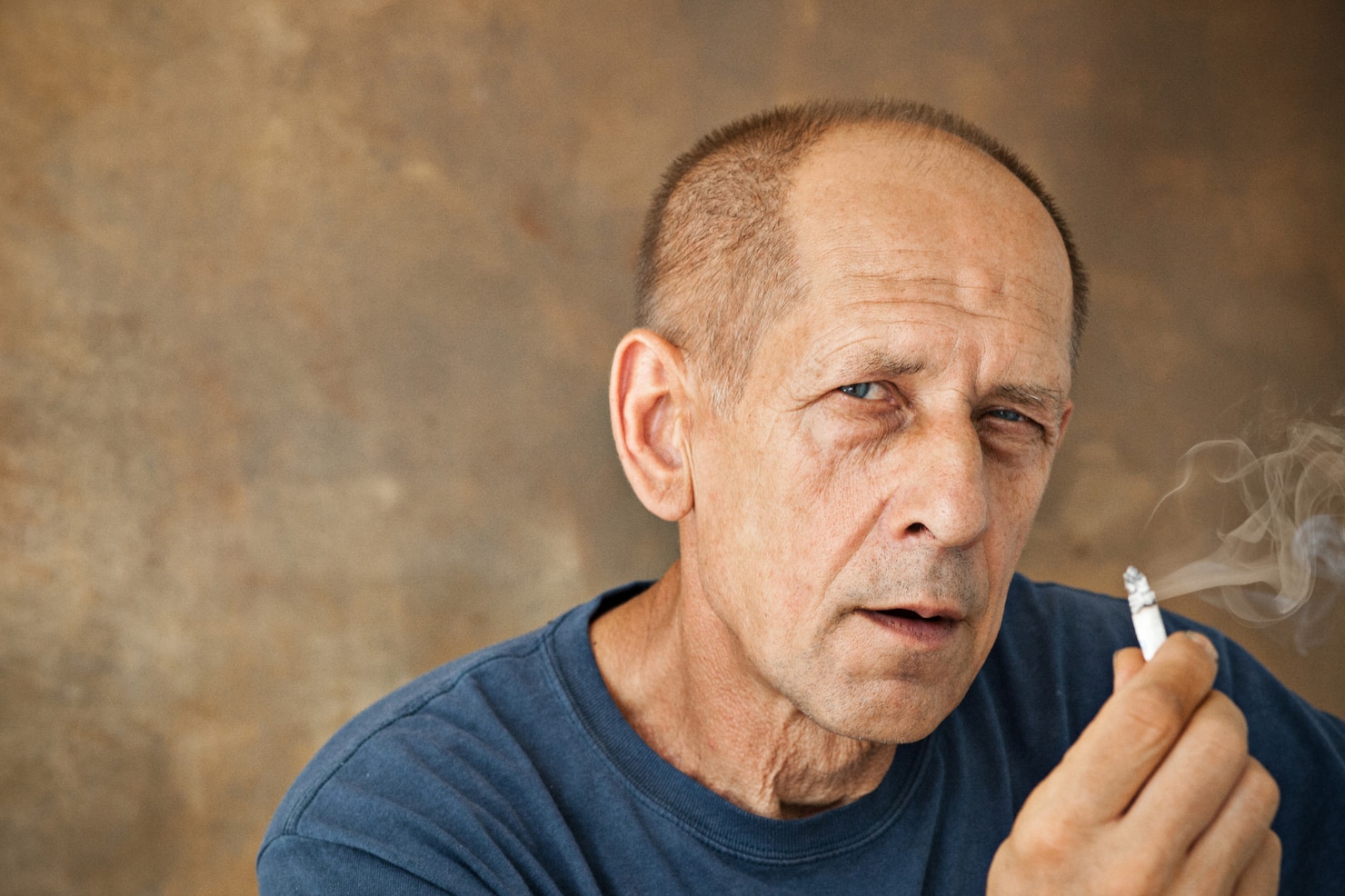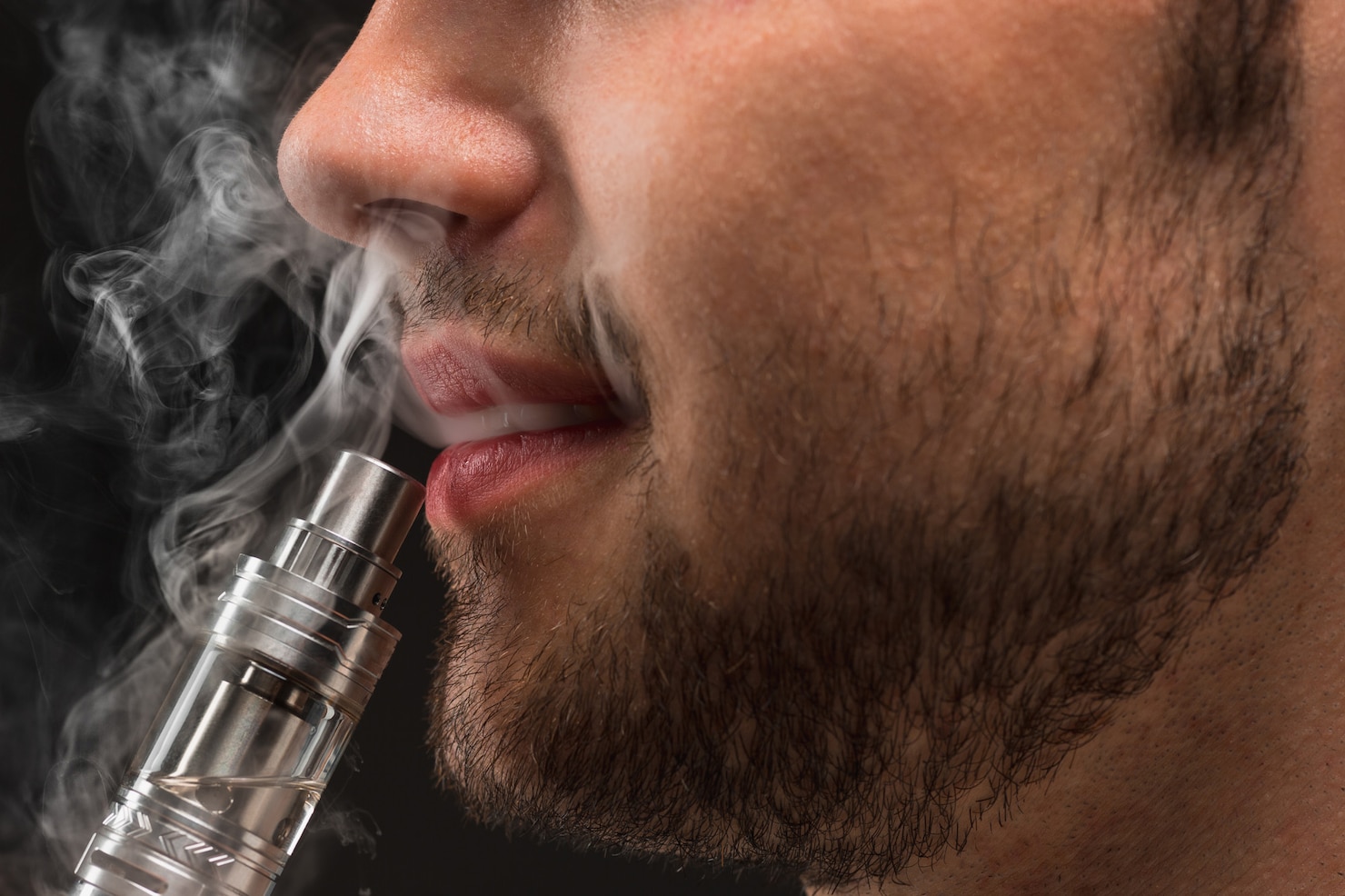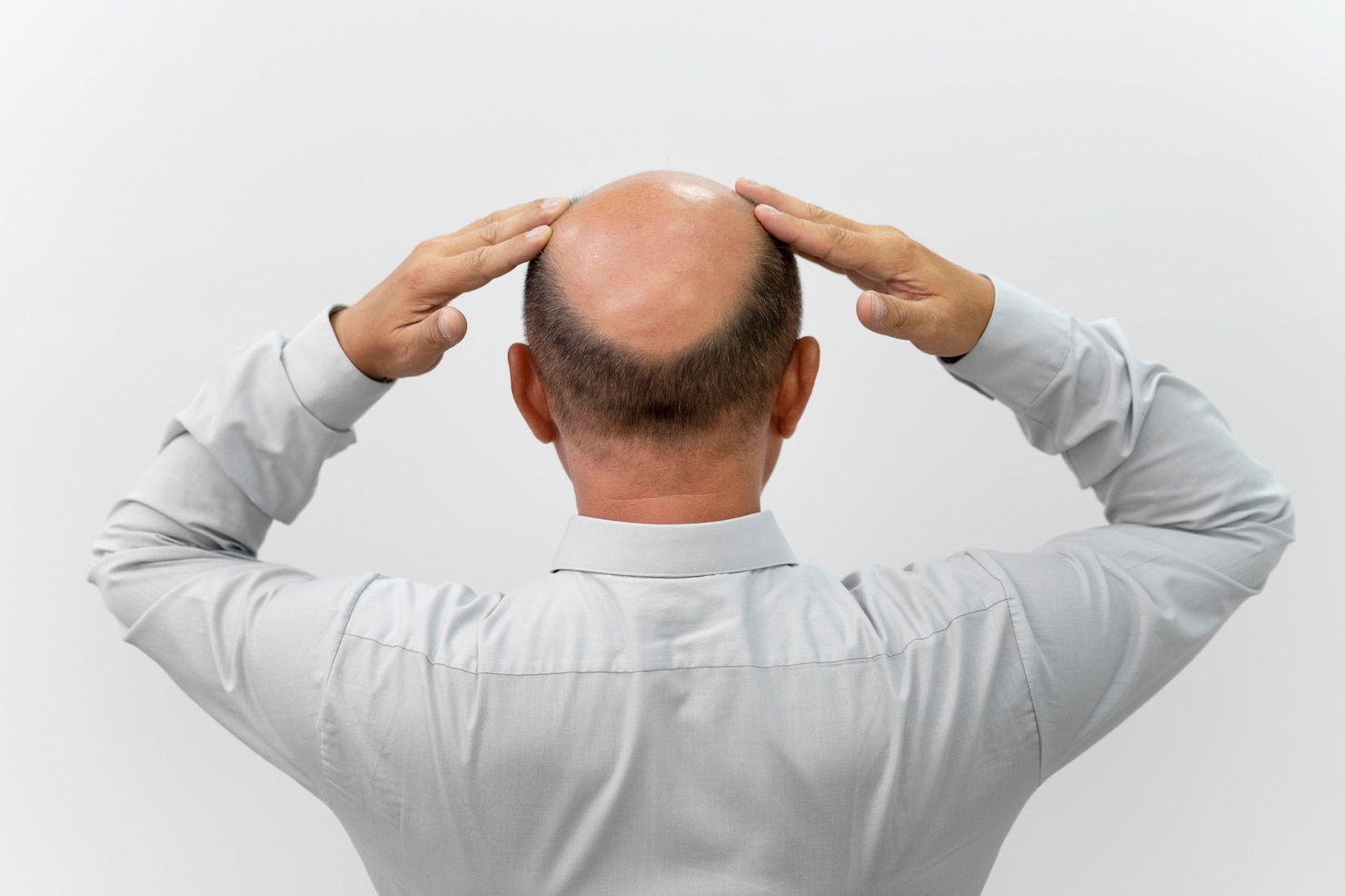
Losing hair due to stress can be a distressing experience, but there are effective ways to address this issue and promote hair regrowth. In this blog post, we will delve into the scientific understanding of stress-induced hair loss, explore the importance of promoting hair health and growth, discuss gentle hair care routines, nourishing the scalp, avoid damaging practices, and highlight the ways on how to regain hair loss from stress.
Understanding Hair Loss from Stress
The Science behind Stress-Induced Hair Loss
When it comes to hair loss, stress can play a significant role in causing this frustrating condition. Many men related to this hence the increasing searches for terms like “hair loss due to stress and anxiety,” “what does hair loss from stress look like?” and “what does stress hair loss look like?”
Understanding the science behind stress-induced hair loss can shed light on why this happens.
Stress triggers a physiological response in your body, leading to the release of stress hormones such as cortisol. Elevated cortisol levels can disrupt the normal hair growth cycle, which consists of three phases: anagen (growth phase), catagen (transitional phase), and telogen (resting phase). Stress can push more hair follicles into the telogen phase prematurely, resulting in excessive shedding and thinning of the hair.
Furthermore, stress can impact the circulation of blood and nutrients to the scalp, depriving the hair follicles of essential nourishment. This disruption in blood flow can weaken the hair roots, making them more prone to breakage and eventual hair loss.
Prevalence and Impact of Stress-Related Hair Loss
Hair loss caused by stress is more common than you might think, affecting a significant number of individuals experiencing high levels of stress. Studies have shown that stress-related hair loss, also known as telogen effluvium, can occur in both men and women of various ages.
The impact of stress-related hair loss extends beyond the physical appearance, often leading to emotional distress and a decrease in self-esteem. Losing hair can be a visible reminder of one's stress, intensifying the psychological burden. This can create a vicious cycle, as the emotional distress caused by hair loss may further contribute to increased stress levels, exacerbating the condition.
It is important to note that stress-induced hair loss is usually temporary and reversible. Managing stress levels and adopting healthy coping mechanisms can help prevent further hair loss and promote regrowth.
Key Takeaway:
Stress-induced hair loss occurs due to disrupted hair growth cycles and impaired blood circulation to the scalp. It is a common condition that can have both physical and emotional effects. By effectively managing stress and implementing healthy stress-reduction techniques, individuals can minimize the impact of stress-related hair loss and support the regrowth of their hair.Promoting Hair Health and Growth

Image Source: FreePik
Balanced Diet and Nutritional Support for Hair Growth
Maintaining a balanced diet and providing the necessary nutritional support are crucial for promoting healthy hair growth. Your hair requires a variety of essential nutrients to thrive and maintain its strength. Incorporating a well-rounded diet rich in vitamins, minerals, and proteins can significantly contribute to the health and growth of your hair.
Ensure that your diet includes foods abundant in vitamins A, C, and E, as they possess antioxidant properties that protect the hair follicles from damage caused by free radicals. Additionally, minerals like iron, zinc, and biotin play vital roles in hair growth and strength. Consider including foods such as leafy greens, citrus fruits, nuts, and lean proteins in your meals to provide your hair with the nourishment it needs.
Importance of Regular Exercise and Stress Management
Regular exercise not only benefits your overall well-being but also plays a role in maintaining healthy hair. Engaging in physical activity stimulates blood circulation, including to the scalp, which promotes nutrient delivery to the hair follicles. This increased blood flow nourishes the hair roots and supports their growth.
Moreover, managing stress levels is crucial for promoting hair health and growth. Stress can negatively impact the hair growth cycle and contribute to hair loss. Finding effective stress management techniques that work for you, such as practicing mindfulness, engaging in relaxation exercises, or pursuing hobbies, can help minimize the detrimental effects of stress on your hair.
Key Takeaway:
Promoting hair health and growth involves maintaining a balanced diet that provides essential nutrients for hair growth, such as vitamins and minerals. Regular exercise helps improve blood circulation to the scalp, ensuring proper nourishment of hair follicles. Furthermore, effective stress management is vital for preventing stress-related hair loss. By adopting these practices, you can support the health and growth of your hair.Adopting a Gentle Hair Care Routine
Choosing the Right Shampoo and Conditioner for Hair Health
When it comes to maintaining healthy and beautiful hair, selecting the appropriate shampoo and conditioner is paramount. The right products can make a significant difference in the overall health and appearance of your locks.
Begin by identifying your specific hair type and concerns, such as dryness, oiliness, or damage. Once you have determined your hair's needs, look for shampoos and conditioners that are specifically formulated to address those issues. For example, if you have dry and damaged hair, opt for products that offer intense hydration and repair properties.
Additionally, it is crucial to pay attention to the ingredients listed on the product labels. Avoid harsh chemicals such as sulfates and parabens, as they can strip the natural oils from your hair and cause further damage. Instead, opt for gentle, nourishing formulations that contain natural ingredients like aloe vera, argan oil, or coconut oil.
Proper Techniques for Washing and Drying Hair
In addition to choosing the right products, employing proper techniques for washing and drying your hair is crucial for maintaining its health. When washing your hair, use lukewarm water as hot water can strip away the natural oils and leave your hair dry and brittle. Apply the shampoo to your scalp and work it into a lather, massaging gently to stimulate blood flow and promote hair growth. Rinse thoroughly to ensure all residue is removed.
After washing, gently squeeze out the excess water from your hair using a soft towel. Avoid rubbing vigorously, as this can cause breakage and frizz. Instead, pat your hair dry or wrap it in a microfiber towel to absorb moisture gently. When using a hairdryer, set it to a low or medium heat setting to minimize heat damage. Keep the dryer at a reasonable distance from your hair and move it continuously to distribute heat evenly.
Key Takeaway:
Selecting the appropriate shampoo and conditioner based on your hair type and concerns, along with employing proper techniques for washing and drying your hair, are essential steps in adopting a gentle hair care routine that promotes hair health and vitality.Nourishing and Strengthening the Scalp

Image Source: FreePik
Scalp Massage and its Benefits for Hair Growth
Taking care of your scalp is crucial for maintaining healthy and vibrant hair. One effective way to nourish and strengthen your scalp is through regular scalp massages. Scalp massage involves using your fingertips to apply gentle pressure and circular motions to your scalp. This technique helps to stimulate blood circulation, which in turn promotes hair growth.
When performing a scalp massage, start by parting your hair into sections to ensure you cover the entire scalp. Apply a small amount of natural oil, such as coconut oil or jojoba oil, to your fingertips to facilitate smooth movements and provide additional nourishment.
Begin at the front of your scalp and work your way toward the back, using circular motions and gradually increasing the pressure. Take your time and be gentle, as excessive force can cause discomfort or damage to your hair.
Not only does a scalp massage improve blood flow, but it also helps to relax and reduce stress, which can contribute to healthier hair growth. Aim to incorporate scalp massages into your hair care routine a few times a week for optimal results.
Essential Oils and Natural Remedies for a Healthy Scalp
In addition to scalp massages, incorporating essential oils and natural remedies into your scalp care routine can further enhance its health and vitality. Essential oils such as lavender, rosemary, and peppermint have been known to have beneficial effects on the scalp. These oils possess antimicrobial properties that can help combat dandruff and maintain a balanced scalp environment.
Key Takeaway:
By incorporating scalp massages, essential oils, natural remedies, and a balanced diet rich in vitamins and nutrients, you can nourish and strengthen your scalp, promoting optimal hair growth and overall scalp health.Conclusion
Regaining hair loss caused by stress is possible with effective strategies and a holistic approach. Understanding the science behind stress-induced hair loss is crucial in addressing how to regain hair loss from stress. By managing stress levels, promoting hair health and growth, adopting a gentle hair care routine, and nourishing and strengthening the scalp, individuals can support the regrowth of their hair.





